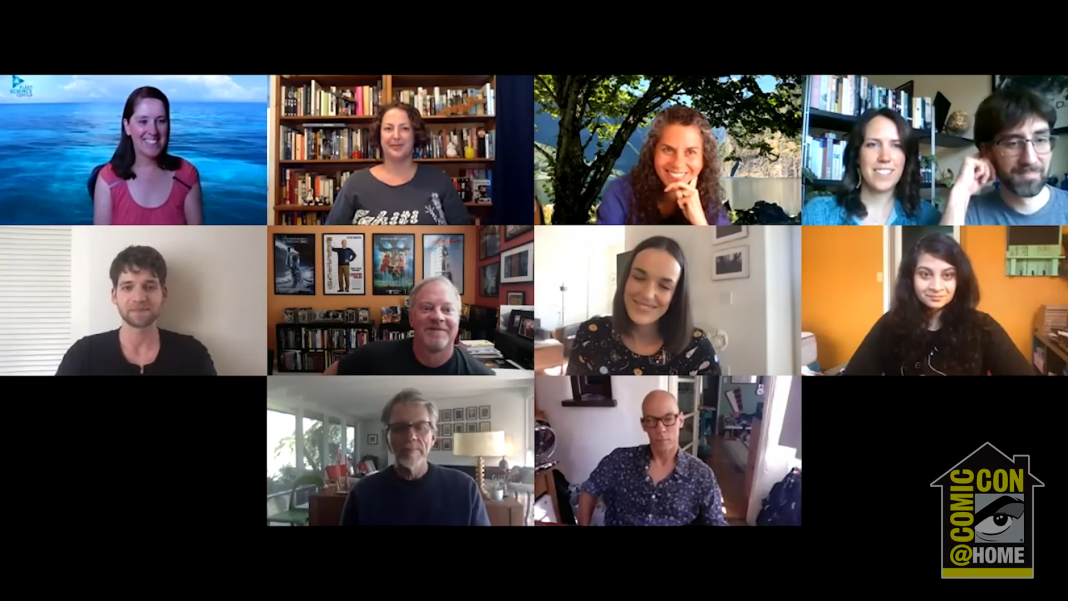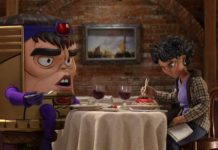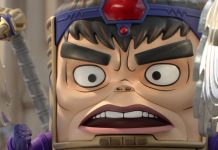With creative exuberance, the Marvel’s Agents of SHIELD team drained the well of science fiction concepts dry throughout its almost-completed seven season run. From Inhumans with mutant abilities, space exploration and time travel, to even a Matrix-like simulated world – it’s always been apparent the creative team were fans of the genre incorporating many of the fun sci-fi trappings into the super hero spy show.
At the Comic-Con@Home panel The Fleet Science Center Celebrates: The Stories & Science of Agents of SHIELD, the Marvel show got one final virtual opportunity to be celebrated at SDCC; moderated by The Fleet Science Center’s very own Andrea Decker, both cast and crew from the show and actual real life scientists got to discuss the relationship between fictional science portrayed on SHIELD versus science in real life. The packed guest lineup included Jeffrey Bell (Showrunner, Executive Producer, and Writer), Dr. Virginia De Sa (Professor in the Cognitive Science Department at UC San Diego), Elizabeth Henstridge (Actor, Director), James Oliver (Co-Producer and Writer), Sharla Oliver (Co-Producer and Writer), Dr. Troy Sandberg (Postdoctoral Researcher at UC San Diego), Dr. Anila Kanchan Madiraju (Research Associate at the Salk Institute for Biological Studies), Joel Stoffer (Actor), Craig Titley (Executive Producer and Writer), and Melissa Miller (Scientist and Science Writer at the Scripps Institution of Oceanography).
One of the fun elements of this panel was just getting insight into what goes into creating a show with sci-fi/science elements from the SHIELD team. Jeffery Bell talked about how, since the show’s early days, the creative team actually worked with The Science and Entertainment Exchange to go over science-based elements when crafting SHIELD’s stories.
“Early on when we gave Fitz a brain injury we talked to a neuroscientist about what part of his brain would be damaged and what were the limitations of that, ’cause he had a figment of Simmons happening as he was going forward,” said Bell. “We talked with my friend Jordan Evans at JPL [NASA’s Jet Propulsion Laboratory] — someone I met through The Exchange; we would try to figure out how old The Monolith was and how do you date something that’s older than the Earth — that predates carbon dating. Finding out fun little details like that hopefully are enough that people kind of go ‘Sure…That sounds great!’”
Main cast member Elizabeth Henstridge, who plays SHIELD agent and biochemist Jemma Simmons, mentioned how for a lot of the medical aspects on the show there would be a medical representative on set. Here, they would help make sure the portrayals of elements such as resuscitation or operations veered closer to how they would actually be in a hospital.

Though the scientist panelists discussed elements of the show that wouldn’t be possible in real life (Sorry fans, as of now, a mutation allowing us to move at super-sonic speeds like Agent Yo-Yo would melt us, Dr. Anila Kanchan Madiraju mentioned) there were still science elements they were appreciative of.
In the finale of Season 2 of SHIELD there is a sequence showing how a group of Terrigen Crystals, which awaken powers in those with Inhuman abilities, dissolved into a part of the ocean; the properties of these crystals then get transferred to fish, which after being caught and processed to fish oil pills make their way to the homes of unsuspecting Inhumans. Melissa Miller talked about how she appreciated this storyline as it involved oceanography, and she thought it did well at representing dispersal through the food chain.
“Scientists can trace elements and radioactivity back to sources and then all the way up, accumulating in bigger and bigger animals that eat each other and into humans,” said Miller. “I think it was a really good reminder and portrayal of the fact that if you pollute something in the ocean you’re affecting the human population.”
When giving a final goodbye to the ComicCon@Home fans on behalf of the SHIELD team Bell took the time to thank everyone who had invested in the main characters, citing it as the reason they made it seven seasons.
“Without the fans we wouldn’t be here, so we’re grateful for that,” said Bell.
Miss any of our other SDCC 2020 coverage? Click here for much more!







